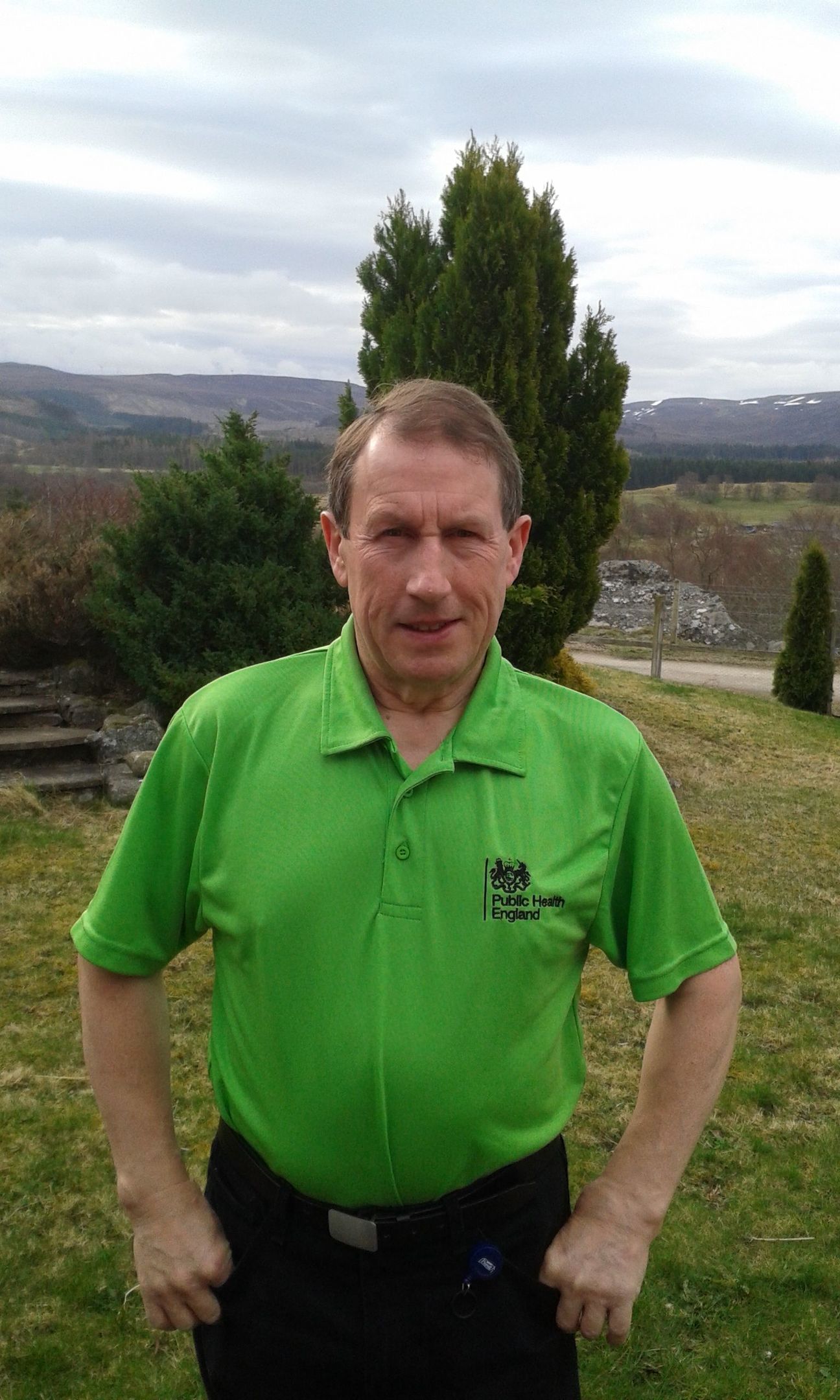An NHS Highland scientist claims that a bowel screening test saved his life – and helped him to fulfil a long-held ambition by working with Ebola victims in Africa.
Neil Spence, of Farr, near Inverness, is now urging other people to take part in screening to detect signs of the potentially deadly disease.
The 58-year-old biomedical scientist, carried out a home test kit two years ago – prompted by the Scottish Government’s Detect Cancer Early campaign.
The test was positive and further investigation found a tumour in his bowel.
After a successful operation, Mr Spence spent five weeks volunteering in Sierra Leone, helping efforts to tackle Ebola.
Mr Spence said: “I had absolutely no idea I was in any danger from bowel cancer.
“A simple little do-it-yourself kit saved my life. After I had sent my test away, I received a letter inviting me to complete a second test. I didn’t think anything of it, but the results came back as positive and I was offered a colonoscopy so this could be looked into.”
All men and women aged between 50 and 74 in Highland are invited to complete a home screening test kit every two years. Bowel cancer is the third most common tumour among both sexes in Scotland, with approximately 4,000 people across the country diagnosed with the condition each year.
Screening is the most effective way to detect bowel cancer in its earliest stages, when people may not know they have symptoms.
If found early, it is highly treatable. Nine out of 10 people survive the disease if it is detected and treated early.
Mr Spence added: “If I hadn’t done the test, then the tumour would’ve spread elsewhere and I could’ve been looking at a very different outcome: it doesn’t bear thinking about.
“You could say I’ve had a new lease of life – and only recently I was able to fulfil a long held ambition of assisting in a humanitarian effort by travelling out to west Africa to help with the Ebola crisis.”
Mr Spence worked with Goal, an Irish humanitarian charity, during his time in Sierra Leone. His expertise in virology proved to be vital in the effort to contain the disease, which has claimed over 4,000 lives to date.
He said: “My experience in Sierra Leone – and my own personal battle with bowel cancer – has given me a new appreciation for life. I treasure every minute I spend with my family and friends, and all of that could’ve very easily been taken away from me had I not set aside five minutes of my time to complete the screening test.”
More information about the Scottish Bowel Screening Programme can be found at www.bowelscreeningtest.org or by phoning 0800 0121 833.
